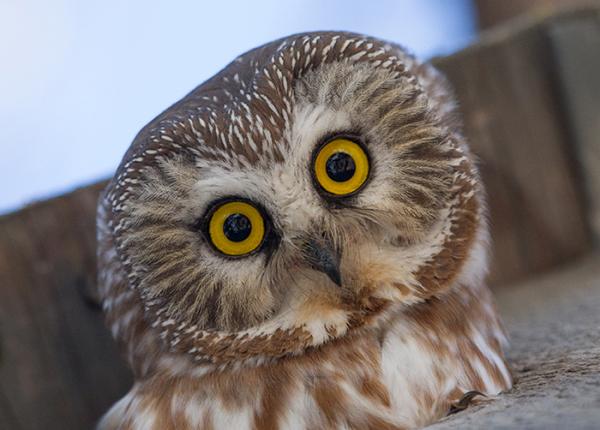From Raven Ridge Wildlife Center
The Pennsylvania Game Wardens we collaborate with are truly exceptional. Recently, we received a call from Game Warden Hyde and Game Warden David, who worked together to bring us a nestling Great Horned Owl from Huntington County. The finder of the owl faced over a two-hour drive to reach our facility, but they were able to meet with the wardens, who kept the owl overnight before transferring it to us.
Typically, we coordinate with the finder and the Game Wardens to renest the owls. However, due to the extensive destruction in the area and the absence of siblings or any signs of parents, it was decided that the best course of action was to bring the owl to us for rehabilitation. The region had recently experienced severe storms and high winds.
Upon arrival, the owl was quiet and had mud on its face, along with feces matted on its underside. After a thorough examination and receiving fluids, the owl was cleaned up and found to be in good condition.
Pharaoh, our foster parent here at Raven Ridge, plays a critical role in caring for these injured, orphaned, and abandoned Great Horned Owls. His presence ensures that the owlets develop natural behaviors and instincts rather than becoming overly familiar with humans, which could hinder their survival in the wild.
Pharaoh will teach them to be wary of humans, communicate appropriately, and hunt effectively. If we do not have a suitable foster parent available, we utilize masks and other methods to prevent imprinting on humans. Imprinting is a crucial period early in an animal’s life when it forms attachments and develops its sense of identity. For instance, birds have a natural drive to imprint on their mothers. This process helps them understand who they are and what they will find attractive as adults.
Unfortunately, if a wild bird becomes imprinted on a human, it cannot be successfully released back into the wild due to its lack of necessary survival skills. When young orphaned birds are fed by adult foster birds, they imprint on their own species instead of humans. This process helps ensure that the baby birds remain cautious of humans and can stay away from people once they are mature enough to be released back into the wild.


Pharoah: Now what ya gotta do, see, is stand up tall, boy! Be pr- I say, be a proud owl!
Fledge: GrxMp . . bRrth
Pharoah: I don’t know what they’re teachin’ these li’l fledgers out there. Now get ready, son, when the human opens the door, we’re gonna stuff this lit stick of dynamite in his overalls! Hee heee! Wake, I say, wake up boy!
I read this in Foghorn’s voice
“… Boy’s about as sharp as a bowling ball…”


